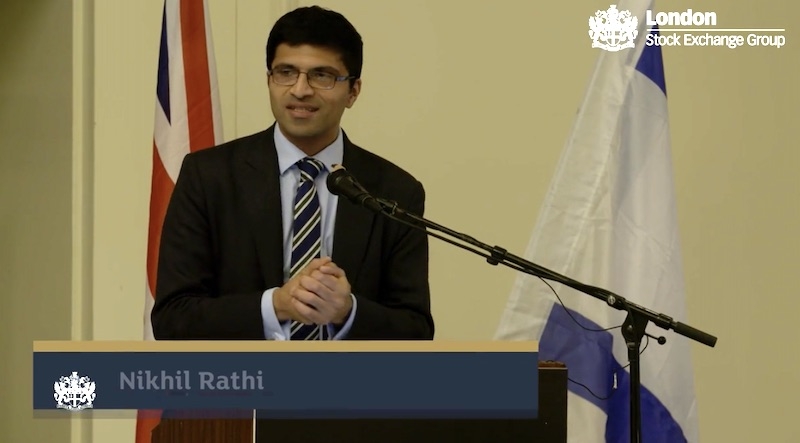The Treasury has today appointed London Stock Exchange CEO Nikhil Rathi as the new permanent chief executive of the Financial Conduct Authority.
Mr Rathi is expected to take up the role in the autumn. He replaces Andrew Bailey who became Governor of the Bank of England in March.
Mr Rathi will receive an annual salary of £455,000 and 12% pension but not be entitled to a bonus or paid any other benefits, the FCA said. He will relinquish any links to the LSE.
Long-term FCA executive Christopher Woolard has been interim CEO since March.
Mr Rathi was director, Financial Services Group at the Treasury before joining the LSE. In his Treasury role he worked on the UK’s EU and international financial services interests.
FCA chair Charles Randell, said: “I warmly welcome Nikhil to the FCA. I look forward to working with him as he leads the FCA to deliver the next phase of its mission.
“Nikhil has been closely involved in guiding the FCA’s development through his roles on our Practitioner Panel and Markets Practitioner Panel, and brings both private sector management skills and experience of domestic and international regulatory policymaking.
“I would also like to thank Christopher Woolard for steering the FCA through its initial response to Covid-19 with great energy and skill. He has been an exemplary leader in this very difficult period.”
Mr Rathi said: “I am honoured to be appointed chief executive of the Financial Conduct Authority. I look forward to building on the strong legacy of Andrew Bailey and the exceptional leadership of Christopher Woolard and the FCA Executive team during the crisis.
“FCA colleagues can be very proud of their achievements in supporting consumers and the economy in all parts of the UK in recent months.
“In the years ahead, we will create together an even more diverse organisation, supporting the recovery with a special focus on vulnerable consumers, embracing new technology, playing our part in tackling climate change, enforcing high standards and ensuring the UK is a thought leader in international regulatory discussions.”

